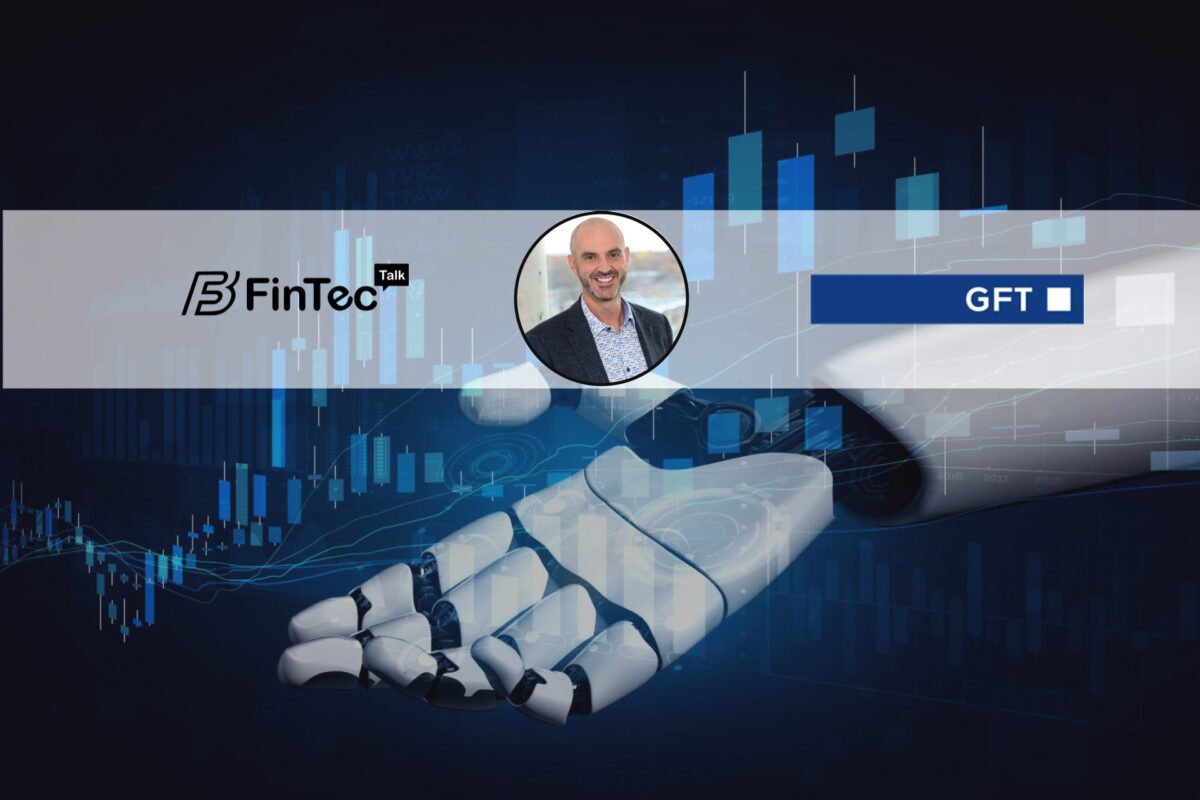1. Tell us about your role in Pocket Money?
I am co-founder in Pocket Money and now acting as CEO. Together with my business partner Rahul, Founder and Chairman, we have found solutions to many financial inclusion problems. I used to live in the Middle East and Africa. Seeing people struggling to earn a living became normality. Rahul also feels quite strongly about financial inclusion. I think we have been focused from the very beginning to this journey. When we managed to release our Pocket Money Wallet, turning an idea into reality, we felt great about offering such an innovative technology in emerging markets.
2. Can you tell us about your journey into this market?
Initially we wanted to just operate a micro-credit business, hoping to offer better rates for unsecured loans. But as we kept bumping into problems that nobody seemed to be able to solve, we started looking at solutions from tech perspective. Suddenly we were able to crack the nuts of cross-border lending, rejected applications and social repayment. Our mobile and web app can already transfer funds in pretty much any currency in the world between lenders and borrowers globally. The next step will be the integrate local wallets and digital currencies, so that the Social Repayment project will empower borrowers with true monetization of their data. This is the main objective of our current fundraising.
3. How do you think technology is developing the Finance Sector?
Many fintech companies fail to really identify the problems. They offer solutions to problems that do not really exist, like payment “solutions” for example. The market is already crowded. That is why we have launched Pocket Money Wallet as our first piece of technology. A wallet based on blockchain that will serve as a contact point with the borrowers. We are going to integrate multiple solutions for topping up and cashing out. At the moment we are about to sign a partnership with a credit card issuer, which will give us a headstart to enter and operate in multiple countries.
4. How has digitalization helped in the growth of lending sector of finance?
Although technology has helped, it also brought up a lot of scams and P2P frauds.
We welcome technology, but we do not want to reinvent the wheel.
We just provide jigsaw pieces to complete the picture. For example, many startups have worked to provide access to credit to the unbanked, but very few, if any, have found a solution to help repay defaulting borrowers. We proudly do so with our innovative Social Repayment. We have partnered up with existing applications with hundreds of thousands of users and large MNC clients, which are already monetizing user data through survey for auditing ads and sample products, as well as micro-tasks on behalf of the brands. We are giving the chance to borrowers to pay back their loan by “working for it”.
5. Why do you think there are need for micro-Credits and how have they benefitted lending sector?
Micro-credit is something invented by a wise individual who understood that the financial system was designed around the wealthy people, not around the needy. In emerging countries, most customers require small loans averaging USD 450 for an average duration of 90 days. Micro-credit brings some sort of financial inclusion to the financially excluded… those clients that are not appealing or profitable for traditional banks. There was a huge gap in the system, that micro-credit managed to fill.
6. Why according to you, cross-border lending & Borrowing was a need of today’s time?
Technically speaking, cross-border lending is impossible. Or at least too risky to be pursued. Let us put it down this way. Between borrowers and licensed lenders within the same country, there is a contractual obligation to repay. In cross-border there is not such a “guarantee”. Hence our solution is not changing the law, but is using local laws, together with tech and user experience, to bridge something that is normally impossible or too risky. When a borrower applies for a loan in country A, through a lender located in country A, if the application is rejected, we immediately circulate that rejected application through the pool of licensed lenders participating in our marketplace. The lender offering the best terms to the borrower is the one winning the lead. When lenders set their Lender Dashboard to automatically accept applications falling within their parameters, the borrower in country A would not even realise that has been rejected by the lender in country A. However, within a minute, the loan funds are transferred from lender in country B to lender in country A in USD, to reduce currency risk. Then the borrower in country A can choose to get the loan on the Pocket Money Wallet or in cash. When the loan is returned, the cash flow goes back to the lender in country A and subsequently to lender in country B.
7. The microfinance industry has been plagued with P2P scandals and lost credibility, how Pocket Money plans to protect itself from scandals and redevelop trust on microfinance industry?
Our strategy is to stay away from P2P. We are afraid that P2P is going to fall into more scams, as it lacks a proper global legal framework to operate. Pocket Money works with Licensed Lenders only. We are also quite sensitive about data protection. Hence, when a user downloads our Pocket Money Wallet, which is the gateway to our ecosystem, we must collect all data to comply with AML and KYC requirements. But when a borrower applies for a loan, we do not disclose sensitive data. All we need to package a loan, are 5 core items: currency, amount, duration, repayment due (including interests and all other fees) and lastly, the profile risk of the borrower. This last bit is the most crucial, because it includes thousands of data points, while preserving privacy and data protection.
8. What advice would you like to give to the Startups?
Look at the big picture. Don’t do what is easy, but what is hard. Try to solve problems that nobody could solve. Put a lot of work in it and never stop sharing your results with anyone relevant. Capital is crucial. That is why every small achievement of a startup must be shared as loud as possible, in order to create a positive chain reaction. Many startups fail because they invest quietly in their tech, but never place enough emphasis on expanding user base. Other fail because they misuse the funds or simply burn too fast. At Pocket Money we are cash sensitive and very efficient at managing resources to deploy deliverables onto the market.
9. What is the Digital innovation in Fintech Industry according to you that will mark 2019?
There is a large trend in mobile wallets, especially with the aim to provide a sort of banking to the underbanked or unbanked. In some countries this trend has already boomed and has created inflation, having too many wallets on the market. Meta wallets will be trendy very soon. Apps to display multiple wallet balances in one place. Right now, even in banking, if you want to check your balance in bank A, you have to download bank A’s app. And for bank B, another app. And so on. Meta wallet will be able to combine all balances in one place. A country like Indonesia, for example, counts more than 30 wallets. It is just not practical to have so many wallets installed.
10. How do you prepare for a Technology-centric world?
The tech-centric world is already here. We are living it to the extreme, especially when it comes to money management. The largest majority of all money transactions in the world have no cash involved. The world has gone in a clear direction over the past 2 decades. Very Countries like Uganda, with one of the world’s youngest populations, where having a bank account was a luxury until barely 5 years ago, are now processing almost as many mobile transactions as fully developed countries. In Vietnam, for example, the number of SMEs has multiplied nearly 5 times in the past decade, and until the decade before, even a simple bank transfer in foreign currency was like science fiction.
11. Can you tell us about your team and how it supports you?
The team has grown to more than 20 talented individuals between hires, advisors and full time service providers. The founding team was Rahul and I. Rahul runs his own family office. He’s still in his 30s, but he has achieved so much as an investor and as an entrepreneur. He’s a real inspiration to me. Chanin and Piyush are also in with us from the very beginning. They were pivotal in giving us the foundation in terms of research and understanding of the market. I come from entrepreneurship background, having launched and operated businesses in Europe, Asia, Middle East and Africa. Subsequently we have added more team members and advisors to help us bridging with the challenges along the way. Our CFO Sergei has worked at a bank built from scratch. Our Chief Legal Officer Stepan has in-depth fintech knowledge and experience.
12. What are the major developments you are planning, in recent time?
Social Repayment is something that has never been attempted before. We came up with a magic formula that empowers borrowers with monetization of their data. By answering questions in short surveys, they are given real money, that are deposited in an account receivable only. Hence truly helping any borrower to pay back their debt. We are very excited about this innovation, because we are the first company in the world going the extra mile for financial inclusion. At the moment we are testing a 12 digits coupon that provides a wallet top up of a value between USD 1 cent and 100 dollars. Users can complete 4-questions survey and get 4 digits unlocked at the time. When they hit 12, they can start receiving rewards for their monetised data in an account receivable wallet. This can be done even before taking a loan, thus promoting saving attitude. It can also be down when a borrower is unable to repay a loan and it can be done collectively. So a borrower could team up with family and friends to quickly earn and pay back.
13. Which Book are you reading these days?
When I was a child I realised that I was a horrible reader, borderline with dyslexia. But my brain developed to learn from listening instead. So I have many audiobooks and I learn from online videos. I love biography and to read how people have shaped their lives to help others. I find inspiration in human being that by being ordinary, become extraordinary.
14. We have heard that you have a very joyful work culture, we won’t mind having a look at some of the pictures?
Yes. Joy is my mission.

15. Can you give us a glance of the applications you use on your phone?
Sure. The Pocket Money Wallet has been released in Beta, and anyone can now download it from wallet.pocketmoney.cash
In the meantime we are closing partnership to build up alternative ways to top-up and cash out. Soon it will be operational globally.



